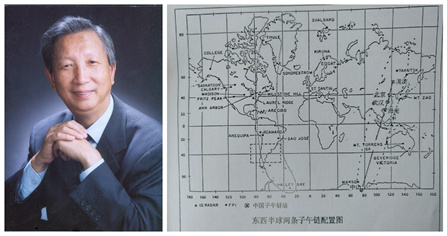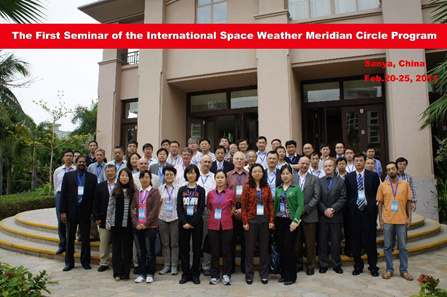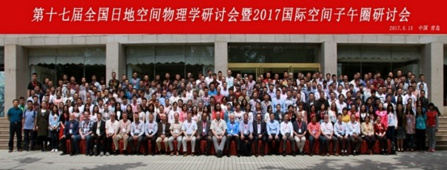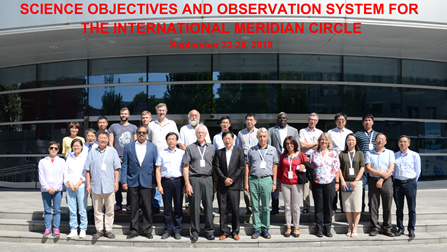In the early 1990s
Prof. Wei Fengsi proposed, for the first time, the concept of a national meridian circle project.
2006
The International Space Weather Meridian Circle Program Workshop was successfully held in Beijing, which was attended by approximately 100 scientists and project managers across the globe from Russia, China, Korea, Malaysia and the United States etc., as well as representatives from the International Heliophysical Year (IHY) and the Scientific Committee on Solar-Terrestrial Physics (SCOSTEP). Crucial consensus was achieved during the very meeting.
2008~2010
Cooperation agreements were signed with scientific research institutions of the United States, Russia, Canada, Brazil, Japan, Australia and other countries, laying a foundation for the cooperation of the International Meridian Circle Project.
2011
The International Space Weather Meridian Circle Program Workshop was successfully held in Sanya, China, which draws more than 60 scientists from the United States, Canada, Russia, Australia, Brazil and China etc. An action plan of the International Meridian Circle Program was shaped during the meeting and cooperative intentions were expressed. As the outcome of the discussion, the Multilateral Scientific Cooperation Agreement on the International Space Weather Meridian Circle Program was signed.
2013
The International Meridian Circle Program (Phase I) was funded by the international science and technology cooperation program of China's Ministry of Science and Technology (MOST).
March, 2017
The IMCP team reported to the MOST, which then reviewed it favorably. Meanwhile, a team to draft the IMCP Proposal was set up, which was chaired by Prof. Wang Chi, Dou Xiankang and Wu Jian.
May, 2017
Held an IMCP conference, more than 80 people participate in the discussion, the meeting reached a consensus: headquarters set in Beijing, do the overall coordination work.
May, 2018
Signed a cooperation agreement with the European Incoherent Scattering Radar Network (EISCAT) on EISCat-3D.
June, 2018
IMCP was sponsored by the Beijing Municipal Science and Technology Commission and funding was allocated to "further study and demonstration project of International Meridian Circle Program".
October, 2018
The cooperation agreement between Brazil's National Institute for Space Research (INPE) and the National Space Sciences Center (NSSC) of the Chinese Academy of Sciences (CAS) was renewed, specifying the IMCP cooperation.
March, 2019
NSSC and the Institute of Solar-Terrestrial Physics (ISTP) of the Russian Academy of Sciences signed a cooperation agreement, specifying ISTP's participation in the IMCP.
April, 2019
NSSC and the Polar Geophysical Institute (PGI) in Russia signed cooperation agreement, specifying PGI's participation in the IMCP. An agreement of cooperative intent was signed between NSSC and the Universidad Autónoma de Nuevo León in Mexico.
June, 2019
A supplementary agreement was signed between Shandong University and the University of New Brunswick (UNB), Canada, specifying UNB's participation in the IMCP. Letters from the Observatoire de Paris and the Pyrenees Observatory of France to NSSC indicate their support to the cooperation on the IMCP.
September, 2019
The International Forums for International Meridian Circle Program (IMCP) jointly organized by International Space Science Institute in Beijing (ISSI-BJ) and National Space Science Center (NSSC) was successfully held in Beijing. The forum attracts more than 30 participants from home and abroad with participants from world-renowned space agencies, organizations, institutes and universities in the United States, Canada, the United Kingdom, France, Brazil, Japan, Sweden, Belgium, Russia, Morocco, Nigeria and Burkina Faso, and the domestic participation comes from the Chinese Academy of Sciences, Wuhan University, Peking University, University of Science and Technology of China, Shandong University, the Institute of Crustal Dynamics of China Earthquake Administration and the Polar Research Center etc.
December, 2019
SCOSTEP sent a letter to the National Space Science Center (NSSC) of the Chinese Academy of Sciences to support cooperation on IMCP.
January, 2021
IMCP was funded by the International Big Science Project Cultivation Program under the International Partnership Program of the Chinese Academy of Sciences.









